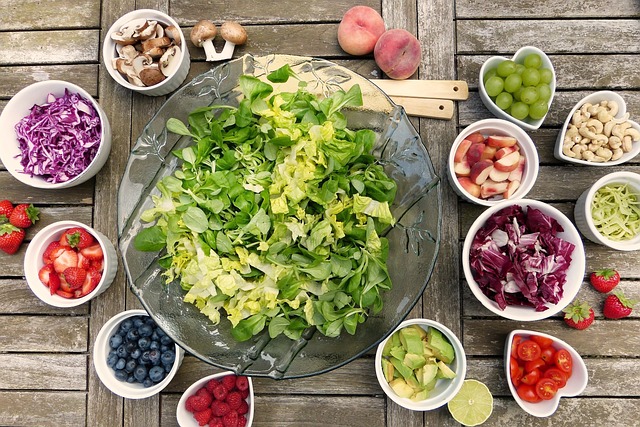From Bellyaches to Bliss: Harnessing the Benefits of Probiotics for Digestive Wellness
Our digestive system plays a crucial role in our overall well-being. It is responsible for breaking down the food we eat and extracting the essential nutrients our bodies need to thrive. However, many people suffer from digestive issues, such as gas, bloating, and abdominal discomfort, which can significantly impact their quality of life.
If you’ve ever experienced these pesky bellyaches, you’re not alone. Fortunately, there is a natural solution that can help alleviate and prevent digestive woes – probiotics.
What Are Probiotics?
Probiotics are living microorganisms, often referred to as “good bacteria,” that reside in our digestive tract. While the word “bacteria” might have negative connotations, certain strains of bacteria are actually beneficial to our health, especially when it comes to supporting a healthy gut.
The most common types of probiotics belong to the Lactobacillus and Bifidobacterium genera, and they can be found in various foods and supplements. These friendly bacteria work by restoring and maintaining a healthy balance of microorganisms in our gut, which is crucial for proper digestion and nutrient absorption.
The Benefits of Probiotics for Digestive Wellness
Probiotics offer several benefits for our digestive system and overall well-being:
1. Improved Digestion
Probiotics help break down nutrients, such as carbohydrates, proteins, and fats, into more easily absorbable forms. This enhanced digestion can prevent common issues like gas, bloating, and diarrhea.
2. Enhanced Nutrient Absorption
A healthy gut microbiome is essential for absorbing nutrients efficiently. Probiotics promote the growth of beneficial bacteria in the gut, optimizing nutrient absorption and ensuring you get the most out of the food you eat.
3. Strengthened Immune System
Approximately 70% of our immune system resides in our gut. Probiotics help strengthen this crucial immune defense by supporting the growth of beneficial bacteria and preventing harmful bacteria from thriving.
4. Reduced Inflammation
Chronic inflammation in the gut can lead to various digestive disorders. Probiotics help reduce inflammation by regulating the immune response and supporting a healthy gut lining.
5. Alleviated Antibiotic Side Effects
Antibiotics can be life-saving, but they can also disrupt the balance of bacteria in our gut, leading to digestive issues. Taking probiotics during and after a course of antibiotics can help alleviate these side effects and restore a healthy gut environment.
6. Mental Well-being
Emerging research suggests a strong connection between the gut and the brain, known as the gut-brain axis. Probiotics have been shown to positively influence brain function and mental health, improving symptoms of anxiety, depression, and stress.
How to Incorporate Probiotics into Your Diet
There are various ways to introduce probiotics into your daily routine:
1. Yogurt and Fermented Foods
Yogurt is perhaps the most well-known probiotic food. Look for yogurts labeled with “live and active cultures.” Other fermented foods like sauerkraut, kimchi, kefir, and kombucha also contain beneficial probiotic strains.
2. Probiotic Supplements
If you find it challenging to consume enough probiotic-rich foods, supplements are an excellent option. Look for high-quality supplements that contain diverse strains of beneficial bacteria.
3. Prebiotic Foods
Prebiotics are non-digestible fibers that serve as food for probiotics. Incorporate foods like onions, garlic, bananas, asparagus, and whole grains into your diet to nourish the probiotics in your gut.
4. Seek Professional Guidance
If you have specific digestive concerns or want personalized advice,







